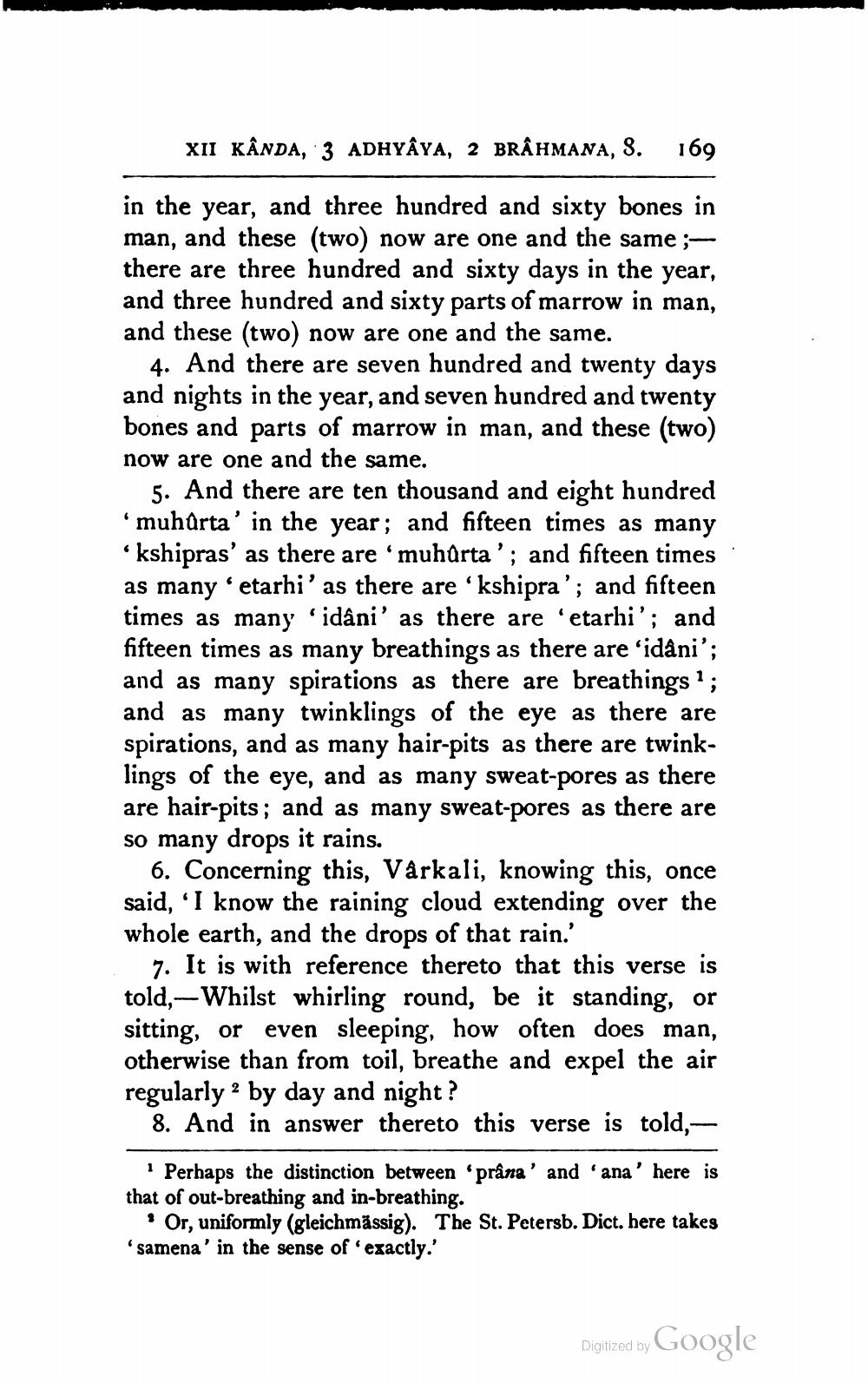________________
XII KÂNDA, 3 ADHYÂYA, 2 BRÂHMANA, S.
169
in the year, and three hundred and sixty bones in man, and these (two) now are one and the same ;there are three hundred and sixty days in the year, and three hundred and sixty parts of marrow in man, and these (two) now are one and the same.
4. And there are seven hundred and twenty days and nights in the year, and seven hundred and twenty bones and parts of marrow in man, and these (two) now are one and the same.
5. And there are ten thousand and eight hundred muhârta' in the year; and fifteen times as many kshipras' as there are 'muharta'; and fifteen times as many.etarhi' as there are 'kshipra'; and fifteen times as many 'idâni' as there are 'etarhi'; and fifteen times as many breathings as there are 'idani'; and as many spirations as there are breathings ? ; and as many twinklings of the eye as there are spirations, and as many hair-pits as there are twinklings of the eye, and as many sweat-pores as there are hair-pits; and as many sweat-pores as there are so many drops it rains.
6. Concerning this, Varkali, knowing this, once said, 'I know the raining cloud extending over the whole earth, and the drops of that rain.'
7. It is with reference thereto that this verse is told, -Whilst whirling round, be it standing, or sitting, or even sleeping, how often does man, otherwise than from toil, breathe and expel the air regularly 2 by day and night?
8. And in answer thereto this verse is told, -
Perhaps the distinction between prâna' and 'ana' here is that of out-breathing and in-breathing.
• Or, uniformly (gleichmässig). The St. Petersb. Dict. here takes samena' in the sense of exactly.'
Digitized by Google




